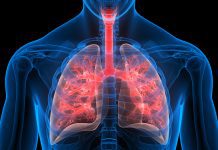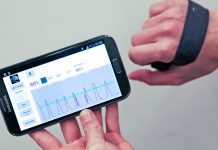One in seven healthy children attempting weight loss in England
New research suggests that around 26.5% of young people in England are trying to lose weight, with the number of healthy weight children attempting...
Covid infection increases the risk of mental health and financial problems
Adults aged 52 and over are more likely to develop mental health problems and financial difficulties after Covid infection.
University College London researchers have found...
A skin swab test for COVID-19 could be on the horizon
A team of UK scientists has demonstrated that a skin swab test for COVID-19 may provide an effective and non-invasive method for diagnosing the...
$1.25 million grant for new research into fungi and cancer development
Researchers from Weill Cornell Medicine have been granted funding to investigate the role of fungi in cancer development.
Dr Iliyan D Iliev, an associate professor...
Does the NHS Breast Screening Programme cause overdiagnosis?
Evidence from a Queen Mary University of London study has revealed that the benefits of the NHS Breast Screening Programme outweigh the small risk...
Scientists find vitamin B6 could reduce anxiety and depression
New research discovers that vitamin B6 supplements can reduce feelings of anxiety and depression.
Scientists from the University of Reading studied how a high dosage...
Vaping cannabis products may expose you to deadly chemicals
New evidence from a Portland State University study suggests that vaping cannabis products could expose you to a deadly chemical known as Ketene.
The Portland...
WHO: Alarming data shows childhood vaccinations are declining
Official data from WHO and UNICEF finds the largest sustained decline in childhood vaccinations in around 30 years.
In the UK, children up to 15...
S100A9 protein may provide an alternative to insulin therapy
University of Geneva (UNIGE) scientists have demonstrated that the S100A9 protein can be developed into an effective diabetes treatment and could one day replace...
140,000 people join NHS trial to detect types of cancer
Over 140,000 will partake in the world’s largest trial of a blood test that identifies over 50 types of cancer.
In the latest drive to...
How tackling zoonotic diseases can prevent future pandemics
Experts from the International Livestock Research Institute (ILRI) have published the “One Health playbook”, which outlines strategies to tackle zoonotic diseases globally and prevent...
Scientists discover a new cystic fibrosis treatment approach
Emerging research from Cold Spring Harbour could mean a new cystic fibrosis treatment is on the horizon.
The latest cystic fibrosis treatment method, headed by...
Cutting-edge wearable technology monitors Parkinson’s disease symptoms
Portuguese researchers have pioneered a wearable system called iHandUapp that expertly tracks a patient’s Parkinson’s disease symptoms.
iHandUapp is developed by INESC TEC and consists of...
NICE recommends two new affordable breast cancer treatments
NICE has agreed to an affordable deal for two breast cancer treatments, available immediately to patients on the NHS.
In the final draft guidance, NICE...
Drinking seven units of alcohol per week may cause cognitive decline
Emerging research from the University of Oxford suggests that consuming more than seven units of alcohol per week could increase your risk of experiencing...
NICE approves first new mesothelioma cancer treatment in 15 years
Exciting news arrives from the NHS as they announce the first treatment for mesothelioma cancer in over a decade is now approved.
This new treatment...
Y chromosome loss linked to premature death among men
Scientists may have identified why women live longer than men on average, discovering that losing the Y chromosome as men age drives diseases and...
Lung cancer immunotherapy side effects prevented with genetic discovery
Scientists at Edith Cowan University have made a groundbreaking genetic discovery that may eliminate side effects from lung cancer immunotherapy.
Of all types of cancer, lung...
Could a virtual reality app reduce common phobias?
A new trial discovers that a virtual reality app could potentially help sufferers of common phobias like dogs and spiders.
Associate Professor Cameron Lacey, from...
Young men have highest risk of heart inflammation after COVID vaccine
Canadian researchers have identified that young males are at the highest risk of experiencing heart inflammation following mRNA COVID vaccination, although this is rare.
The...



















